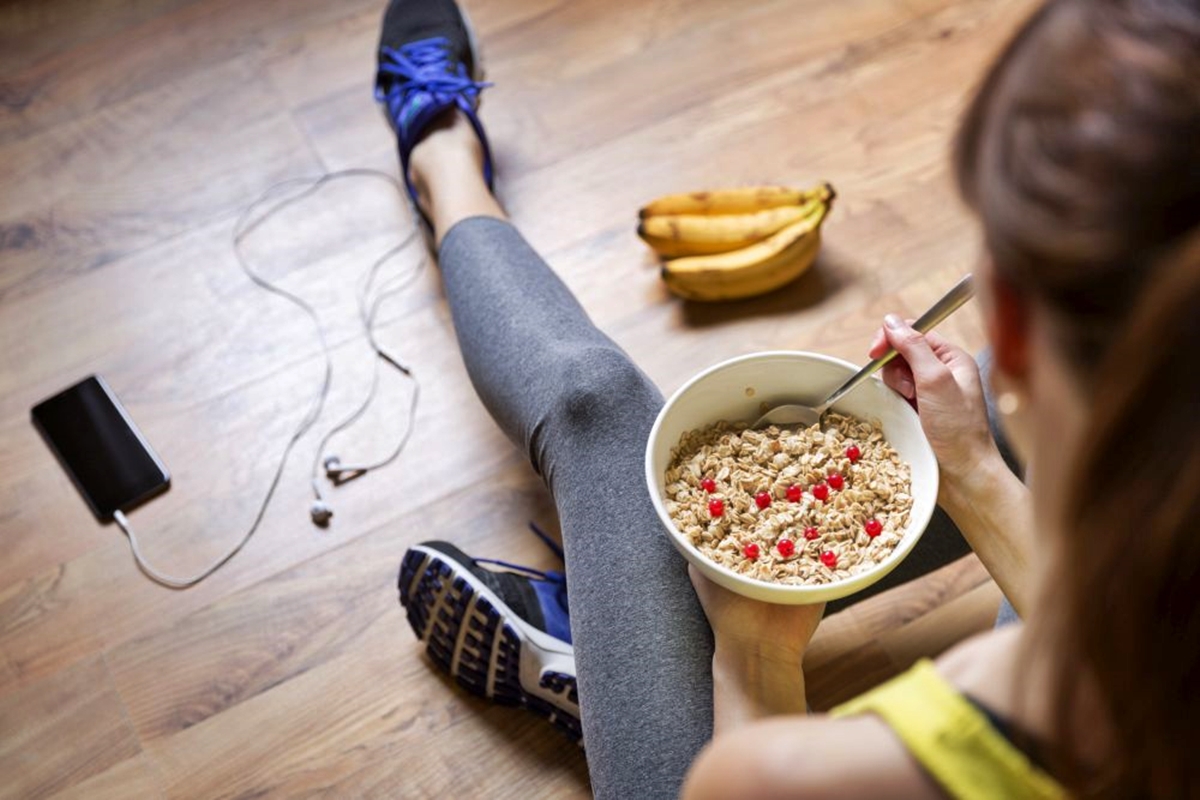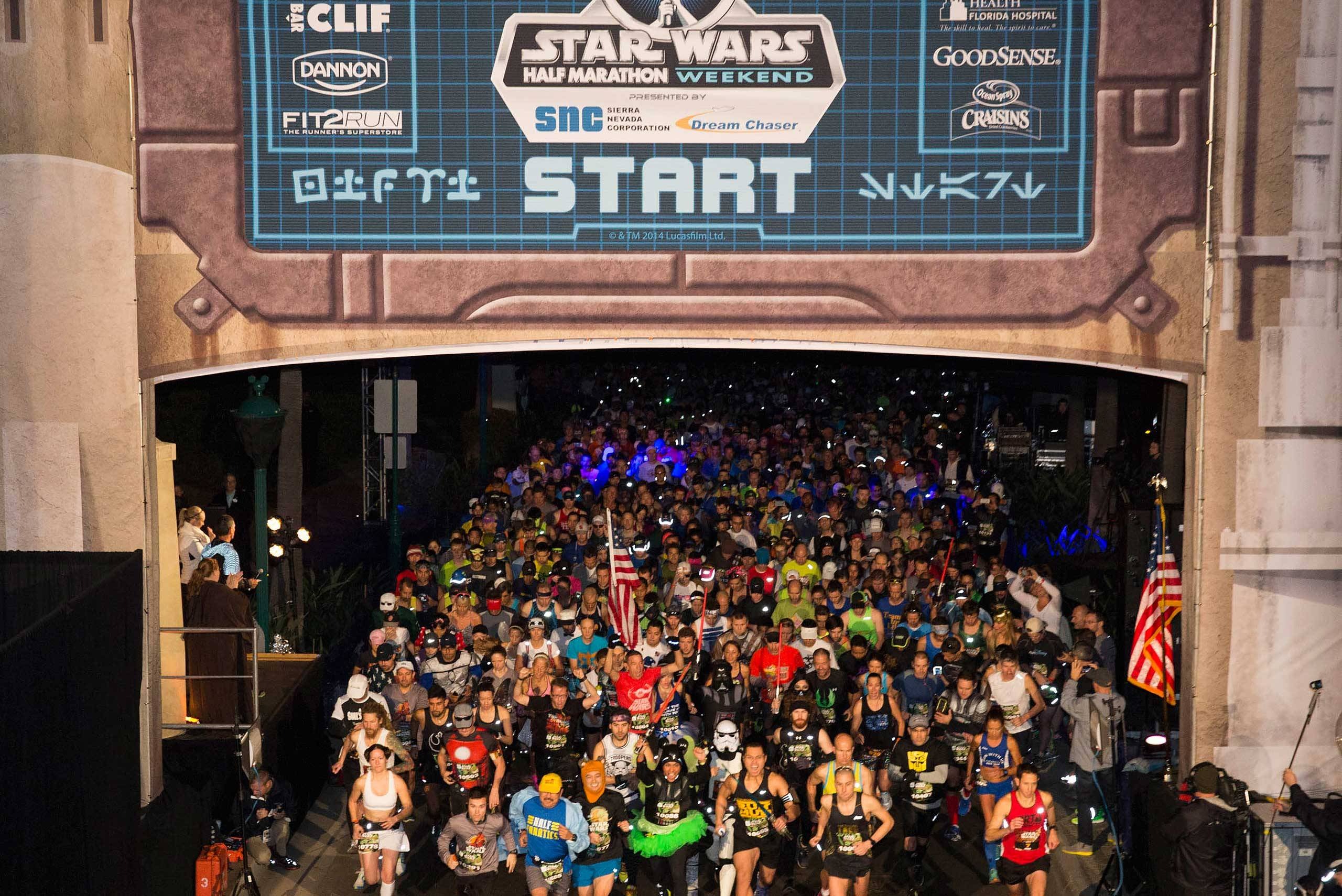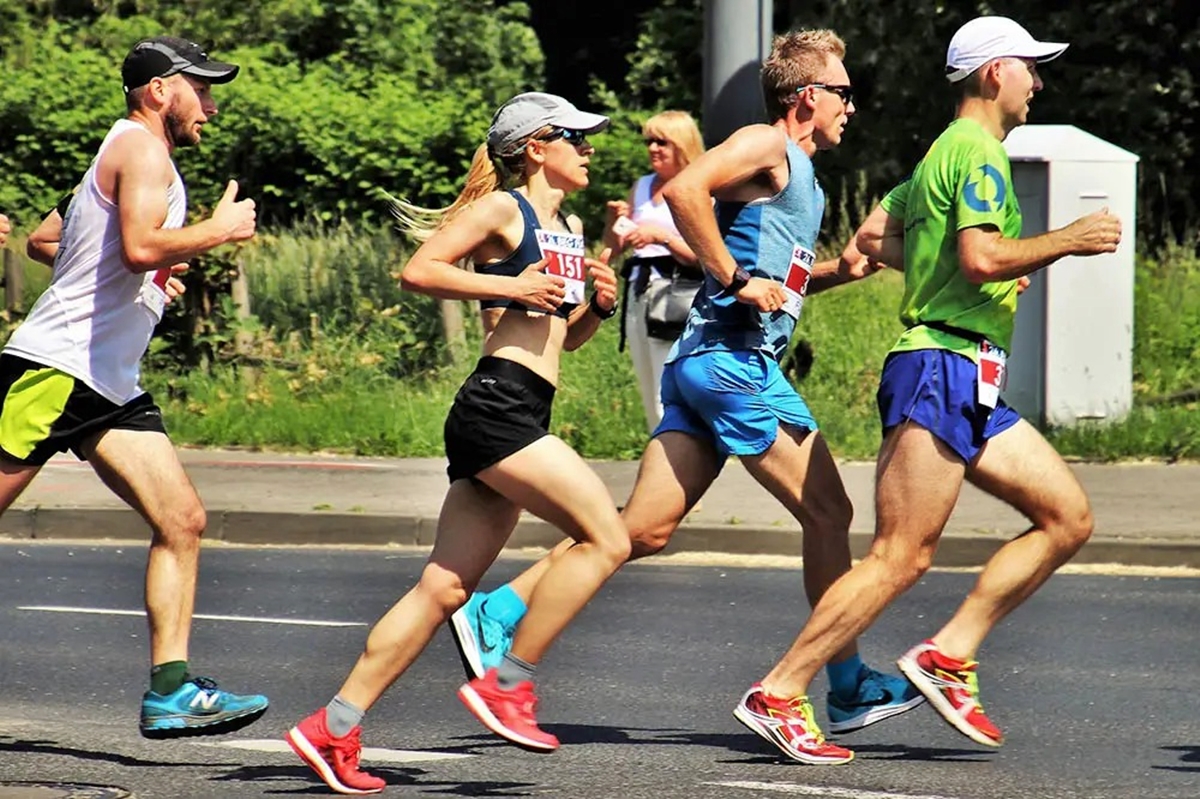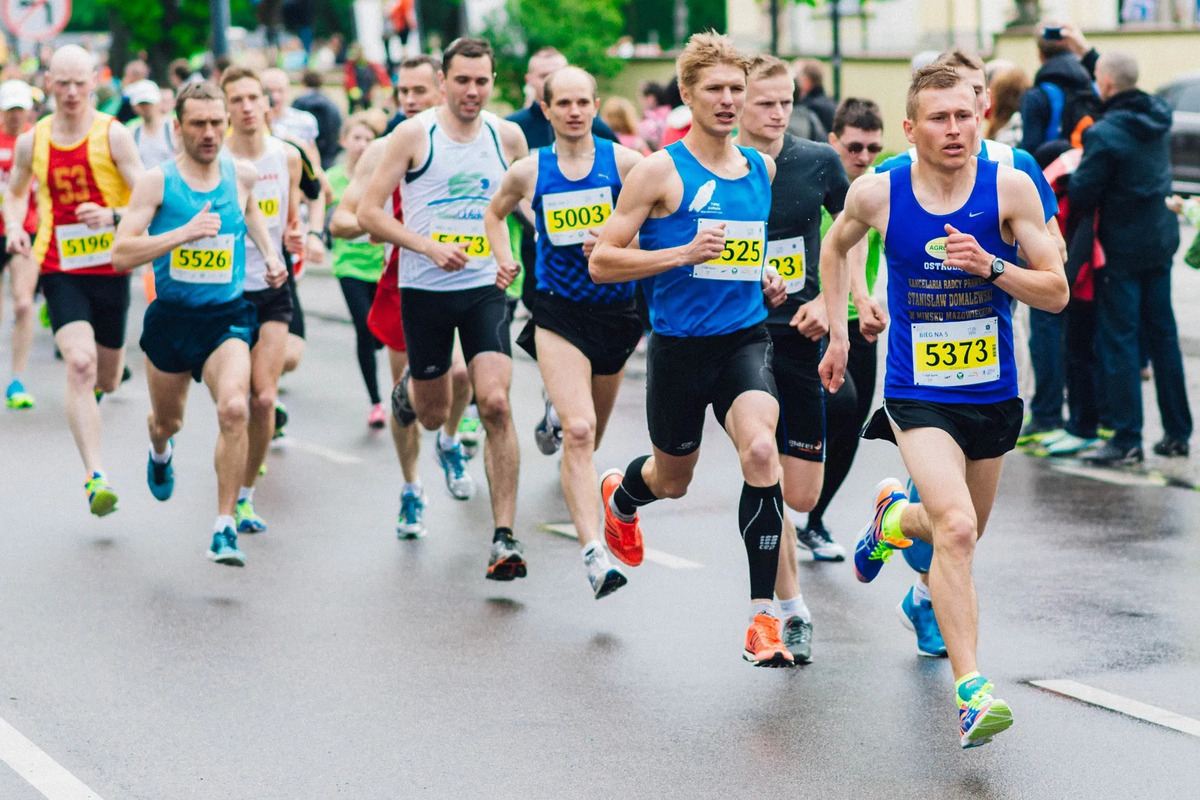

Featured
What To Eat During A Half Marathon
Modified: August 19, 2023
Discover the best foods to fuel your body during a half marathon. Featured in this comprehensive guide, find out what to eat to boost your performance and maximize your energy levels.
Introduction
Preparing for a half marathon involves more than just intense training runs and endurance exercises. Proper nutrition plays a crucial role in ensuring peak performance and sustained energy levels throughout the race. When it comes to running a half marathon, fueling your body with the right foods at the right times can make all the difference.
During a half marathon, your body undergoes immense physical exertion. The energy demands are high, and without adequate fuel, you risk depleting your glycogen stores and hitting the dreaded “wall.” To avoid this, it’s essential to prioritize your nutrition and develop a strategy that provides the necessary energy and nutrients to keep you going strong.
Whether you’re a seasoned runner or a first-time half marathoner, this article will outline the importance of proper nutrition during a half marathon and provide guidance on pre-race meals, hydration strategies, fueling options during the race, and post-race recovery foods. By understanding the significance of fueling your body adequately, you can maximize your performance and enjoy a successful half marathon experience.
Importance of Proper Nutrition During a Half Marathon
Proper nutrition is essential for any athlete, but it becomes even more crucial during a half marathon. The energy expended during a race of this distance is significant, and without adequate fuel, you risk hitting the wall, experiencing fatigue, and compromising your performance. Here’s why proper nutrition is so vital for half marathoners:
- Enhanced Performance: Consuming the right nutrients before and during the race can significantly improve your performance. Carbohydrates, for example, are the primary fuel source for endurance activities, providing readily available energy to your muscles. By fueling up with carbohydrates, you’ll have the energy you need to run faster and longer.
- Delayed Fatigue: The glycogen stores in your muscles are limited and can become depleted during a long-distance race. By properly fueling your body with carbohydrates, you can delay the onset of fatigue and maintain a steady pace throughout the race.
- Improved Endurance: Alongside carbohydrates, it’s important to consume adequate amounts of protein, healthy fats, and micronutrients. Protein aids in muscle repair and recovery, while healthy fats provide sustained energy. Micronutrients like vitamins and minerals are essential for overall health and optimal athletic performance.
- Recovery and Injury Prevention: Proper nutrition doesn’t end at the finish line. After the race, your body needs nutrients to repair damaged muscles, replenish glycogen stores, and support recovery. By supplying your body with the right post-race foods, you can enhance your recovery, reduce muscle soreness, and lower the risk of injuries.
Understanding the importance of nutrition during a half marathon is the first step towards optimizing your performance and achieving your goals. In the following sections, we’ll delve deeper into specific strategies for pre-race meals, hydration, fueling during the race, and post-race recovery to ensure you have the information you need for a successful half marathon experience.
Pre-race Meals
The meals you consume leading up to the half marathon play a crucial role in your performance and energy levels on race day. The goal is to have a well-balanced meal that provides sustained energy while being easy on the stomach. Here are some guidelines for your pre-race meals:
- Carbohydrates: Carbohydrates should be the main focus of your pre-race meals. They provide the necessary energy for endurance activities. Opt for complex carbohydrates like whole grains, fruits, and vegetables rather than simple sugars to ensure a steady release of energy.
- Protein: Including a moderate amount of protein in your pre-race meals can aid in muscle repair and reduce muscle breakdown during the race. Lean sources of protein such as chicken, fish, tofu, or legumes are excellent options.
- Healthy Fats: While carbohydrates are the primary fuel source, incorporating some healthy fats into your meal can provide sustained energy. Avocado, nuts, seeds, and olive oil are good sources of healthy fats.
- Fiber: While fiber is essential for overall health, consuming high-fiber foods immediately before the race may cause gastrointestinal distress. Opt for low-fiber choices such as white rice, pasta, or bread to prevent any digestive issues.
- Hydration: Proper hydration is crucial before a race. Drink plenty of fluids throughout the day leading up to the event. Aim to consume about 16-20 ounces of water 2-3 hours before the race, and continue hydrating with small sips until the start time.
An example of a pre-race meal could be a bowl of oatmeal topped with fruits and nut butter, along with a side of eggs or Greek yogurt. Another option is a chicken or tofu stir-fry with brown rice and vegetables. Experiment with different meal combinations during your training to see what works best for your body.
It’s important to remember that everyone’s nutritional needs are unique, so it’s essential to experiment with your pre-race meals during your training runs. Find what works best for your body and stick to a routine that leaves you feeling energized and ready to tackle the race.
Hydration Strategies
Proper hydration is crucial for optimal performance during a half marathon. Dehydration can lead to decreased performance, muscle cramps, and fatigue. To stay hydrated before and during the race, consider the following strategies:
- Pre-hydrate: Start hydrating well before the race day. Drink plenty of water throughout the day leading up to the event. Aim to consume about 16-20 ounces of water 2-3 hours before the race. This will help ensure you start the race adequately hydrated.
- During the race: Hydrate frequently during the race to replace fluids lost through sweat. Aim to drink around 4-6 ounces of water or sports drink every 15-20 minutes. Sip on small amounts rather than chugging large quantities to prevent discomfort or stomach issues.
- Electrolytes: In addition to water, it’s important to replenish electrolytes lost through sweating. Electrolytes, such as sodium and potassium, are essential for proper muscle function. Consider consuming a sports drink or electrolyte-enhanced water during longer runs or hot weather.
- Monitor urine color: Keep an eye on your urine color to gauge your hydration status. Pale or light yellow urine indicates proper hydration, while dark yellow urine may signal dehydration. Aim for a pale yellow color to ensure you’re adequately hydrated.
- Post-race hydration: After the race, continue to hydrate to replace any fluids lost during the run. Water, sports drinks, or electrolyte-enhanced beverages can help restore hydration levels and promote faster recovery.
Remember that individual hydration needs may vary depending on factors like sweat rate, body size, and weather conditions. Take the time to experiment with different hydration strategies during your training runs to find what works best for you.
Additionally, it’s important to be mindful of overhydration, which can lead to hyponatremia, a condition characterized by low blood sodium levels. Balancing your fluid intake and electrolyte consumption is key to maintaining proper hydration levels throughout the race.
By following proper hydration strategies, you can help optimize your performance, reduce the risk of dehydration-related issues, and ensure a successful and enjoyable half marathon experience.
Fueling Options During the Race
During a half marathon, it’s important to provide your body with a steady stream of fuel to sustain energy levels and maintain performance. Here are some fueling options to consider during the race:
- Energy Gels: Energy gels are a popular choice among runners due to their convenience and quick absorption. These compact, gel-like packets are packed with carbohydrates and often include electrolytes. Consume an energy gel every 45-60 minutes during the race, washing it down with water.
- Sports Drinks: Many races offer sports drinks on the course, which can provide both hydration and carbohydrates. If you prefer, carry a small bottle of sports drink to sip on during the race. Aim to consume around 4-6 ounces every 15-20 minutes.
- Chews or gummies: Some runners prefer solid fuel options like energy chews or gummies. These bite-sized snacks typically contain carbohydrates and can be easily eaten and digested during the race. Experiment with different flavors and brands during your training to find the ones that work best for you.
- Fruit slices or bars: If you prefer natural fuel options, consider carrying small pieces of fruit, such as banana or orange slices, or portable fruit bars. These options provide natural sugars and can be a refreshing choice during longer runs.
- Peanut butter and jelly sandwiches: For runners who prefer real food, a small peanut butter and jelly sandwich can be a great source of carbohydrates and protein. Cut it into bite-sized pieces beforehand for easy consumption on the go.
It’s important to experiment with fueling options during your training runs to determine what works best for your body. Consider factors like taste, digestion, and ease of consumption when selecting your fuel options.
In addition to fueling during the race, don’t forget to hydrate with water or sports drinks at each hydration station. Consistency is key, so aim to consume small amounts regularly throughout the race rather than waiting until you feel depleted.
By providing your body with the right fuel during the race, you can maintain energy levels, prevent glycogen depletion, and sustain performance until the finish line.
Post-race Recovery Foods
After crossing the finish line of a half marathon, your body requires proper nourishment to replenish glycogen stores, repair damaged muscles, and support recovery. Here are some post-race recovery food options to aid in your body’s recovery process:
- Protein-rich foods: Consuming protein after the race is essential for muscle repair and recovery. Opt for lean sources of protein such as chicken, fish, tofu, or Greek yogurt. These foods provide essential amino acids that aid in rebuilding and restoring muscle tissue.
- Carbohydrates: Replenishing glycogen stores is crucial after a long-distance race. Incorporate carbohydrates into your post-race meal to restore energy levels. Whole grains, fruits, and vegetables are excellent sources of carbohydrates.
- Healthy fats: Including some healthy fats in your post-race meal can provide sustained energy and aid in the absorption of fat-soluble vitamins. Avocado, nuts, seeds, and olive oil are good sources of healthy fats to consider.
- Hydration: Rehydrating after the race is just as important as during the race. Drink plenty of fluids to replace any fluids lost through sweat. Water, sports drinks, or electrolyte-enhanced beverages can help restore hydration levels.
- Antioxidant-rich foods: Long-distance running can lead to oxidative stress and inflammation in the body. Including antioxidant-rich foods like berries, dark chocolate, or green leafy vegetables can help combat inflammation and support overall recovery.
Timing is crucial when it comes to post-race nutrition. Aim to consume a balanced meal within 30-60 minutes after finishing the race. This is when your body is most receptive to refueling and recovery. However, listen to your body and eat when you feel ready.
In addition to food, consider a post-race cold bath or ice pack to reduce inflammation and soreness in your muscles. Stretching and foam rolling can also aid in the recovery process.
Remember, proper recovery is essential for optimizing your performance in future races and preventing injuries. By fueling your body with the right post-race foods and taking care of your muscles, you’ll bounce back faster and be ready for your next running adventure.
Conclusion
Proper nutrition is key to success in a half marathon. Fueling your body with the right foods before, during, and after the race will enhance your performance, improve endurance, and aid in recovery. By following the strategies outlined in this article, you can optimize your nutrition and maximize your performance on race day.
During the pre-race period, focus on consuming meals that are rich in carbohydrates, moderate in protein, and low in fiber to provide sustained energy and prevent digestive issues. Hydration is also crucial, so make sure to drink plenty of fluids leading up to the race and continue to hydrate during the event.
When it comes to fueling during the race, experiment with different options such as gels, sports drinks, chews, or real food to find what works best for you. Consistently replenish your energy levels and stay hydrated during the race to maintain peak performance.
After crossing the finish line, prioritize post-race recovery by consuming a meal that includes protein, carbohydrates, and healthy fats to replenish glycogen stores, aid in muscle repair, and support overall recovery. Hydrate properly and consider incorporating antioxidant-rich foods to combat inflammation and promote faster recovery.
Remember, every runner is unique, so it’s important to experiment with different nutrition and fueling strategies during your training runs to find what works best for your body. Listen to your body’s cues and make adjustments accordingly.
By prioritizing proper nutrition and fueling during your half marathon journey, you’ll have the energy, endurance, and strength to conquer the race and achieve your goals. With careful preparation and a focus on fueling your body, you’ll be well on your way to a successful and fulfilling half marathon experience.









